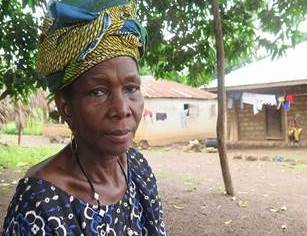
Oct. 2014—Women represent 55 percent of the total population in Sierra Leone’s Yamba Taneneh community. Mostly poor, they depend on small-scale farming, planting crops on tiny areas of land and raising mixed livestock to make a living.
The traditional slash-and-burn agricultural practice in the area results in negligible yields and significant losses. Poverty is a major cause of biodiversity loss and climate change in this part of Sierra Leone.
To combat this problem and improve the lives of communities in the Upper Guinean Forest ecosystem, the STEWARD Program—a joint investment of USAID and the U.S. Forest Service-International Programs—is now addressing transboundary threats to biodiversity across Guinea, Sierra Leone and Liberian borders by harmonizing policies and creating interventions to combat the adverse effects of global climate change.
The farmer field school in Yamba Taneneh recently trained 25 farmers to improve their farming practices and minimize damage to the environment through conservation agriculture, which has generated significant gains and economic growth for the farmers and their dependents. Conservation agriculture, which encourages farmers to practice no-tillage planting, permanent soil cover and crop rotation, achieves acceptable profit with high and sustained production levels, while conserving the environment. An additional 35 farmers that are not part of the STEWARD program have also seen the results and adopted the conservation practices to improve their livelihoods and help save the forest.
Since 2012, the STEWARD Program has been working in Yamba Taneneh to mitigate the effects of climate change and improve lives while increasing collaboration within national and regional institutions in the areas of biodiversity conservation, fisheries, forestry, sustainable agriculture and trade.
“At the end of every harvest season, each of us contribute a certain amount of money (which depends on your output) into the group`s coffer, which is a social fund for members,” says Massaley Bangura, a beneficiary of the program and public relations officer for the informal farmers groups. “We also use the money to buy seeds and distribute to all members for the next farming season. I`ve done a lot of things through this program, including taking care of my family`s daily needs, which was very difficult for me before.”
LINKS
Follow @USAIDWestAfrica, on Facebook







Comment
Make a general inquiry or suggest an improvement.